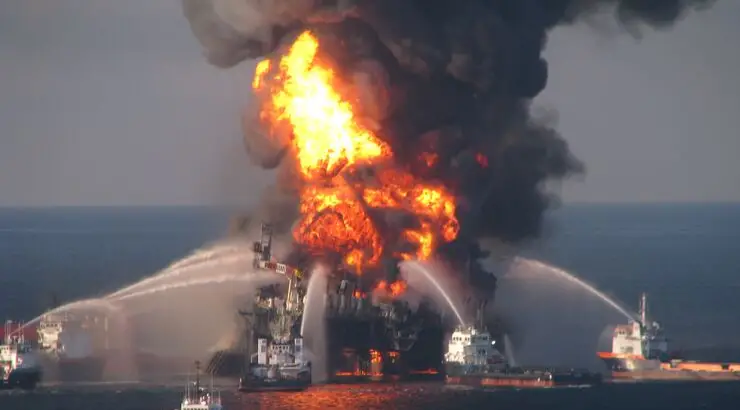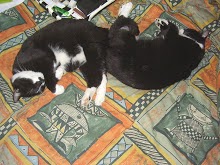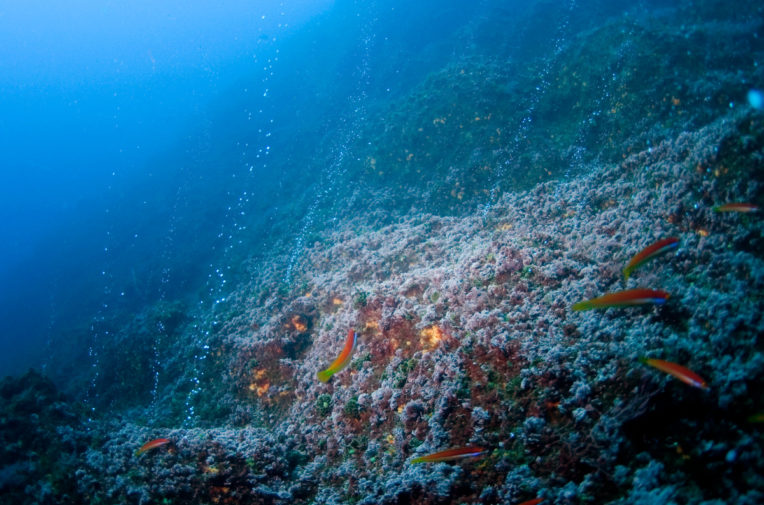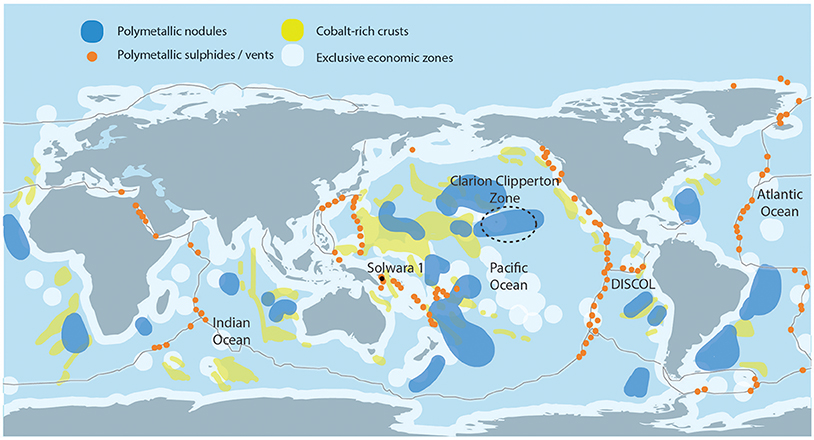Het is
bijna 10 jaar geleden (20 april 2010) dat de ramp met het Deepwater Horizon
olieplatform plaatsvond, de reden voor Louisiana
University Marine Consortium (LUMCON)
een onderzoek te doen naar de omstandigheden op de bodem van een groot
gebied in de Golf van Mexico, rond de plek waar deze olieramp plaatsvond en beste bezoeker de bevindingen zijn
niet mis....
Onderwatercamera's
tonen een dor landschap, of beter nog een geasfalteerd gebied, waar
alleen nog misvormde zeedieren als krabben e.d. zijn te zien, misvormd veelal
door het ontbreken van ledematen.....
BP heeft vele miljarden besteed aan het opruimen van de troep aan land en voor het
schadeloosstellen van vissers*, echter als je de bevindingen in het
hieronder opgenomen artikel van The Mind Unleashed leest, kan je
zelfs met nog eens 100 miljard de boel onderwater niet schoonmaken, ofwel de door BP betaalde schadevergoeding is een
lachertje.......
En dan probeert smeerpijp BP zich voor te doen als duurzaam bedrijf....** ha! ha! ha! ha! ha! ha! ha! ha!
Lees het
volgende artikel dat werd geschreven door Elias Marat en zegt het
voort, elke oliewinning in (diep-) zee of arctisch gebied dient
gestopt te worden, daar een ramp als die met Deepwater Horizon zo
weer kan gebeuren, waarna de schade niet of nauwelijks is te herstellen, zo blijkt eens te meer in de Golf van Mexico:
Deepwater Horizon Spill Created Horrific Mutant Creatures in the Gulf of Mexico
The
Deepwater Horizon spill has turned the Gulf of Mexico into an
apocalyptic wasteland.

(TMU) — As
the 10-year anniversary of the horrific Deepwater Horizon oil spill
approaches, the area’s ocean floor has
been transformed into
a fetid wasteland coated in tar and populated by handfuls of
deformed, tumor-ridden crustaceans.
The
explosion on a BP oil platform in the Gulf of Mexico on April 20,
2010, was one of the most catastrophic
disasters to
hit the ocean in human history, with the U.S. government estimating
that 4.9 million barrels (210 million gallons) were discharged across
hundreds of square miles.
But new
video footage from
a 2017 expedition has confirmed the worst fears regarding the
catastrophic spill, showing that the Gulf is not only still reeling
from the disaster but may have been rendered a permanent dead zone.
The
footage was captured by a camera-mounted remotely operated vehicle
(ROV) operated by a team at the Louisiana University Marine
Consortium, or LUMCON. Their
findings on
the apocalyptic ruin lying extant across the once-thriving deep sea
was recently published in the journal Royal
Society Open Science.
When
marine researcher Clifton Nunnally first saw the footage uncovered by
the ROV, he was blown away by the horrors that he witnessed.
“’Nothing prepared us for what we saw,’ [Clifton said.] … a slick black wasteland, empty of all its usual denizens, such as sea cucumbers and giant isopods. Instead, the area had been taken over by strange crabs and shrimp, either tumor-ridden or eerily languid, as if sleepwalking across the seafloor. The typically white marine snow—detritus that had drifted down from organisms living above—was jet black and clumped up. It was clear that the site was toxic, and maybe irrevocably marred.”
While
the area had previously been known for its rich biodiversity, the
zone surrounding the Deepwater Horizon site was devoid of such
features as sea anemones, sponges and corals typical of that part of
the deep sea.
"It was like visiting a graveyard. There were even slimey “webs” at the seabed that looked like cobwebs. It was the only time I’ve been in a submarine along the seabed and found myself sad and dreading what was coming next.”- UGA's @SeepExplorer atlasobscura.com/articles/deepw…

Instead,
they found some shrimp and a number of deformed, mutated crabs with
shells blackened by oil, covered in parasites. In many cases, limbs
and claws were shriveled or entirely missing.
Nunnally
said:
“Everywhere there were crabs just kicking up black plumes of mud, laden with oil … There were deformities, but mostly things were missing.”
LUMCON
executive director Craig McClain told CBC that
his team suspects that as the oil decomposes, it’s likely mimicking
a sex hormone that lures crabs to the sites—a common occurrence at
other oil spills that attract lobsters.
The
researchers compare the area to the La Brea Tar Pits. When the crabs
do manage to find a mate, everything goes downhill from there—they
end up mired in toxic detritus from the oil spill which coats their
shells, preventing them from molting and ridding themselves of
parasites that are naturally accumulated.
The
scientists were shaken to their core by the experience. McClain
explained:
“The prior week, we had done dives across the Gulf of Mexico and saw, you know, glass sponges and squids and fish and whip corals and giant isopods, one of my favorite deep sea animals.
It was the equivalent of walking around in a tropical rainforest and the next day walking around on a cement parking lot.”
And
while the dire state of the Gulf demands further attention, McClain
worries that nobody is paying attention. And LUMCON, which conducted
its research with its own funds, can’t even afford further
expeditions.
McClain
said:
“I’m concerned that there’s not been an increased effort in and continued monitoring of the recovery or the lack of recovery at the site.
We can’t begin to know what restoration of the deep sea looks like until we actually get a handle of how fast it’s recovering in the first place.”
================================================
* Ook op zee is BP bezig geweest met kapitalen aan chemicaliën om de olie op te laten lossen, dat gaf extra vervuiling en heeft niets uitgehaald, zoals nu is aangetoond.......
** Zie: 'BP launches biggest global campaign in a decade' (Greenpeace is in Groot-Brittannië onlangs een petitie gestart tegen deze zwaar misleidende campagne, helaas kunnen wij deze niet tekenen)
** Zie: 'BP launches biggest global campaign in a decade' (Greenpeace is in Groot-Brittannië onlangs een petitie gestart tegen deze zwaar misleidende campagne, helaas kunnen wij deze niet tekenen)



